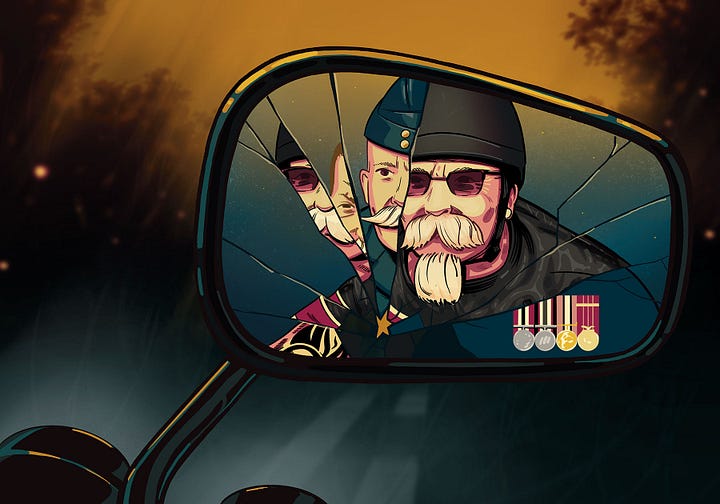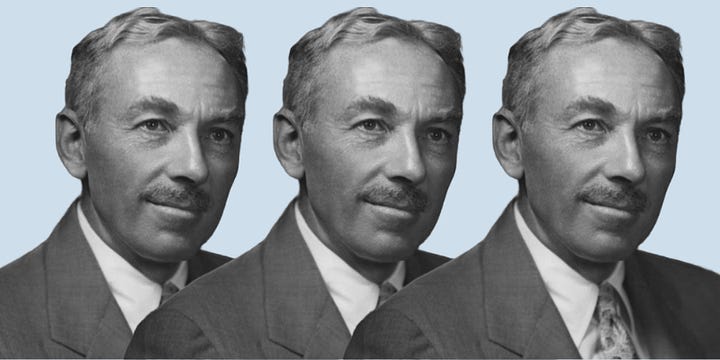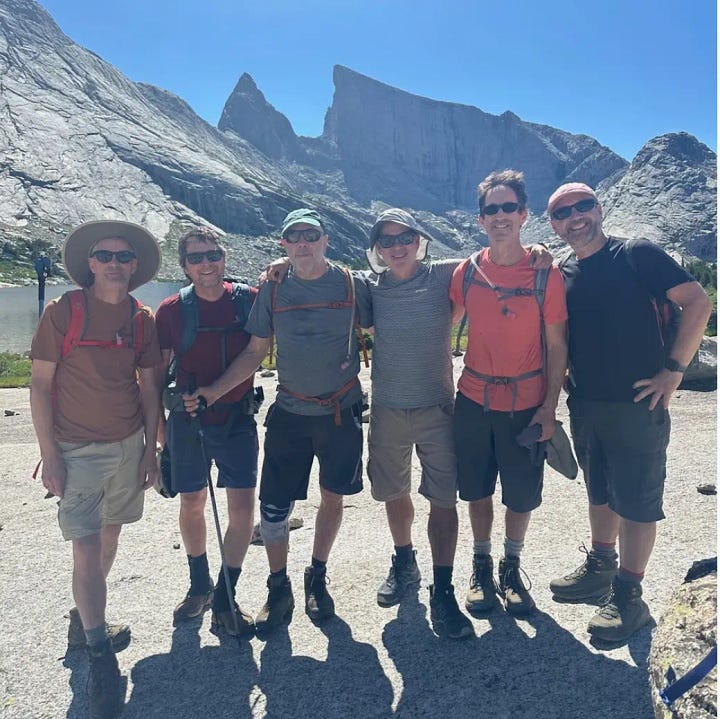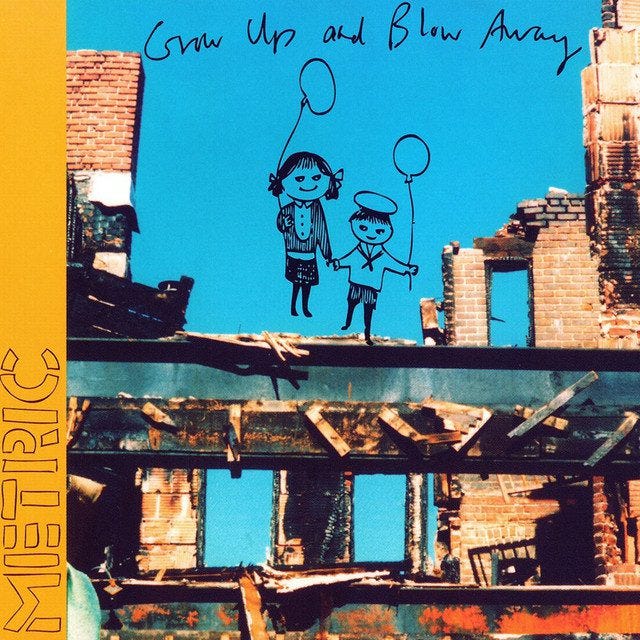A Fresh Batch of Stellar Personal Essays...
Plus: Electric Literature's fund drive, Narratively's 2024 Memoir Prize, and more...
Welcome to Memoir Land—a newsletter edited by Sari Botton, now featuring four verticals:
Memoir Monday, a weekly curation of the best personal essays from around the web brought to you by Narratively, The Rumpus, Granta, Oldster Magazine, Literary Hub, Orion Magazine, The Walrus, and Electric Literature. Below is this week’s curation.
First Person Singular, featuring original personal essays. Recently I published
“First Person Singular in Review,” featuring Memoir Land “First Person Singular” essays by
, , , , , , and .The Lit Lab, featuring interviews and essays on craft and publishing. There are also weekly writing prompts and other exercises from, ahem, a New York Times bestselling ghostwriter of memoirs (that’s me) for paid subscribers. Most recently I posted “The Memoir Land Author Questionnaire #55: Christina Myers” “The Prompt-O-Matic #41,” and “The Memoir Land Author Questionnaire #56: Jamie Marich”.
Goodbye to All That, where I’m continuing to explore my fascination with the most wonderful and terrible city in the world, something I began doing with two NYC-centric anthologies, Goodbye to All That, and Never Can Say Goodbye. Recently I published “Elegy in Times Square,” by
. A new Goodbye to All that essay is coming soon…




Essays from partner publications…
The Military Gave My Brother Purpose. It Also Broke Him.
by Lisa Gregoire
“After Joe died, I gathered a box of his personal papers from the house. I read binders of military commendations and certificates lovingly stored in plastic sleeves; I read psychological assessments and journals. He’d been an outstanding soldier, with a peacekeeping tour in Egypt. And he’d been an alcoholic. Those two things can coexist.”
“Small But Unforgettable Moments.” What E.B. White Loved About New York City
by Martha White
“He was a master at finding the exact words for these small but unforgettable moments, but he always considered himself “a non-poet who occasionally breaks into song.” He lived with one foot in New York and the other in Maine, but whichever state he was in, he felt that “to sail away from so intoxicating a place would be unbearable, even for a brief spell.” Yet sail away he did, so he could return, but also so he could write about it.”
Sugar Factory
by Joelle Kidd
“Going to Sugar Beach is kind of like going to any other beach in Toronto, except it’s extremely compressed, about a city block’s worth of sanded area, and you can’t touch the water, which is on the other side of a guard rail. Oh, and there’s a giant tanker welded to the concrete next to you, and a big office tower behind you. Sugar Beach isn’t a natural beach, it’s an installation that was created in 2010 on the concrete slab of what was formerly known as the Jarvis Street Spit.”
Miles to Go Before We Sleep
by
“Each year on the first Friday of August we meet up in a mountain town like Jackson, Stanley, Bellingham, Durango, or Bishop, and spend the night in a cheap motel. The next morning we venture out of cell phone range with a week’s worth of provisions, to disconnect from our everyday lives and reconnect with nature and each other. We’ve been doing this 36 years and counting, which adds up to nearly a year of our lives.”
Essays from around the web…
Daughters Like Me
by Ashley C. Ford
“When Daddy isn’t there, who sees you? I was the kind of kid who looked for myself in books and on screens. Luckily, I was born in a time when there was no shortage of literature, movies, and television shows centering girls who were lauded for brains and bravery as much as beauty, but those kids still rarely looked anything like me or lived lives that paralleled mine. Aside from Dawson’s Creek’s Joey Potter, none of them had fathers who loved them from behind bars. And anyway, Joey Potter was 15.”
Black Cherry Merlot
by Victoria Hood
“Sister taught me how to stand up for myself. She told me that people are not inherently owed my time or energy. Sister taught me that a battle needs brass knuckles. Sister taught me the power of giving a gift.
33 Things I Know About Money
by Diana Ruzova
“27. I’ve read that people on their death bed never wish for more money, just time. 28. A European pirate ship once mistook precious Aztec cacao beans for rabbit pellets and dumped them into the sea. 29. The other night I had a dream that I was in a big fancy house. I turned the stove on to make a pot of tea and left it there to boil. While I roamed around the house looking at all the money, I realized that I had forgotten about the teapot and had started a small fire. 30. To impress me, a guy once set a $20 bill on fire with a gas station lighter outside a bar in downtown Los Angeles. But all I could see through the blue of the flame was a cluster of tents on the sidewalk across the street.”
Here’s Looking for You
by
“The morning after my father’s first heart attack, I took the train from San Diego to Los Angeles to see him. It was December, near the end of my first semester in college. At the hospital I found him in a lively conversation with his business partner. I lingered in the doorway of his room and watched them talk. My father’s face was animated as he told the story about how they took arteries from his leg and attached them to his heart, replacing the blocked ones. I imagined his heart was a car engine and the arteries were new hoses.”
Hurricane Season
by Nicholl Paratore
“I don’t know if my grandmother realized that our move south would mean swapping blizzards for hurricanes, or how much more frequently they would occur, but she was no stranger to a life framed by rigor or repair. I was in kindergarten when she first taught me the phrase pumping iron, and by that point, she had been featured in more national bodybuilding magazines than I could count. My grandmother is pint-sized and platinum blonde, but she’s neither elderly nor frail. She’s The Uncanny Granny—a moniker she adopted when she started publishing articles in her fifties about her weightlifting practice and its impressive results. Her frame is muscular, svelte, tan; her biceps and calves like taught tennis balls, waistline nonexistent. When I picture her in her element, I see her at the gym in biker shorts and a tank top, bopping along to the hip hop in her headphones as she bench presses her bodyweight with ease—the younger men around her both jealous and stunned.”
Death Tax
by Marianna Marlowe
“The image of the glass dining room with my family in it now evokes a conservatory: a room that conserves the precious—our family as hothouse flowers. Or a sanctuary—a room that holds our family as it once was, loving and intact. Sometimes I think, as another photo appears, that was only a month after my mother died. Or, that was two weeks before my father died. It’s like a test. The endless need to know, a toll, forever taxing. What was happening? Who was where?”
How She Suffered
by Sarah Orman
“We hiked for hours, barely stopping long enough to take in the gorgeous view. I tried to keep up as we hiked through sunset, grateful that my long legs gave me a fighting chance. That night, in a thin sleeping bag on rocky ground, I could not find a position that would relieve the tightness in my back. My skin crawled with fever. By the time daylight crept in through the flimsy walls of our borrowed tent, I had not slept and could not stop myself from writhing and moaning, though I tried to keep it down. Finally, Hans woke Dave, who quickly diagnosed the problem. ‘I can’t believe you hiked seven miles up a mountain with pyelonephritis!’ he said. It was the only time I saw him smile.”
Pastor's Wife, With a Hatchet In Her Hand
by Brianna Bell
“Eventually, I stopped believing in God – or at least, the God that I had clung to since childhood. At first I was numb. And then I got angry. I didn’t deconstruct – the cute word Christians use when they intentionally pull apart their old, archaic values and theology. I lost my faith with a menace – it was ruptured, dismembered, hacked away until it looked like a bloody, pillaged mess. I left Christianity with a hatchet in my hands. And still, my husband was a pastor at the same fucking church that destroyed my soul.”
🚨Announcements:
📢 Contribute to Electric Literature’s Annual Fund Drive
Electric Literature is a nonprofit organization with 8 staff members and 3 paid interns. We publish 15 articles per week—essays, reading lists, short stories, flash fiction, poetry, graphic narratives, interviews, and criticism—by over 500 writers per year.
Our work costs $500,000 annually, and last year, 33% of that was donated by 2,000 of our readers—people like you! The average donation of $65 made a difference. We depend on you to keep the lights on.
Electric Literature may be free to read, but the costs are real and going up. We need to raise $25,000 by December 31, 2024 to keep Electric Literature going into next year. In these uncertain times, the only thing I know for sure is that we cannot afford to take the organizations and institutions we care about for granted. If the continued existence of Electric Literature means something to you, please make a contribution today.
📢 Narratively’s 2024 Memoir Prize…
Narratively is accepting submissions for their 2024 Memoir Prize. They are looking for “revealing and emotional first-person nonfiction narratives from unique and overlooked points of view." The guest judge is New York Times bestselling memoirist Jami Attenberg. One Grand Prize Winner will receive $3,000, and the two finalists will receive $1,000 each. There is a $20 entry fee and the deadline to submit is December 19, 2024.
📢 Attention Publications and writers interested in having published essays considered for inclusion in our weekly curation:
By Thursday of each week, please send to memoirmonday@gmail.com:
The title of the essay and a link to it.
The name of the author and, NEW, the author’s Bluesky Handle.
A paragraph or a few lines from the piece that will most entice readers.
Please be advised that we cannot accept all submissions, nor respond to the overwhelming number of emails received. Also, please note that we don’t accept author submissions from our partner publications.








Thank you. Publishing my essay was life-changing in ways I could have never imagined.